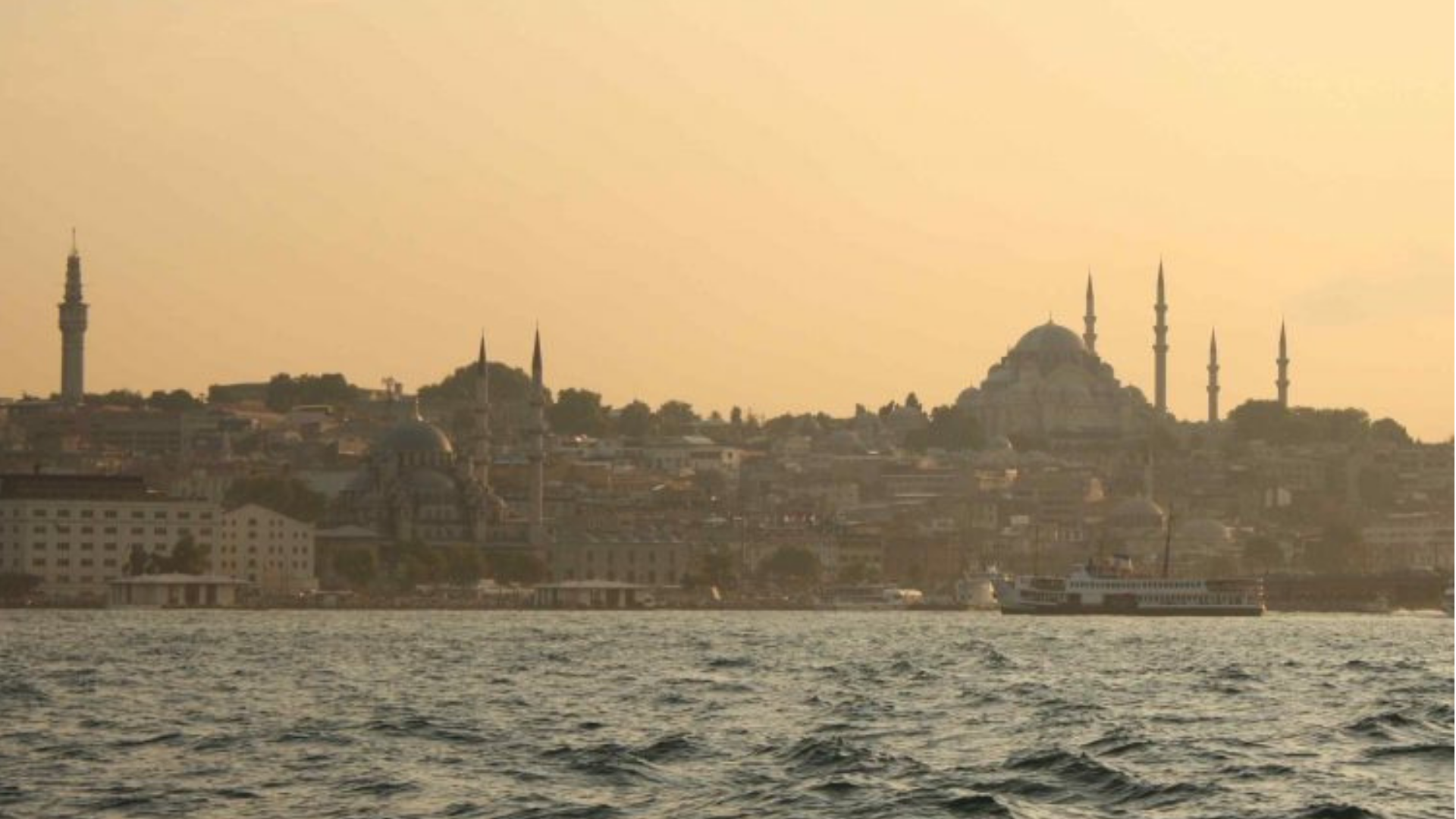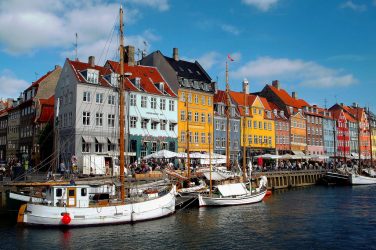Studying at Europe’s most Eastern border: Elizabeth Grenier spent her exchange semester in Istanbul and tells us what to expect from this dynamic city. Be prepared for the destruction of some clichés!
Studying Europe in Istanbul
I’m sitting in a classroom. Students are setting up their PowerPoint presentation for the class. The theme for this evening: “Multiculturalism and Interculturalism”. We could be anywhere in the world. Then I look out of the window: the sky is red. As the sun sets on a chaotic skyline, 25 muezzins start singing, from all directions, their own variation of the evening call to prayer. It sounds like the end of the world. And I smile: I am in Istanbul.
The Armenian Genocide
The Armenian Genocide refers to a massacre committed on the Armenian people by the Ottoman Empire during and especially in the year after the First World War. Between April 1915 and the year 1918, the Ottoman government systematically decimated the number of its civilian Armenian population by over one million. Under the pretext of ‘relocating’ a great number of Armenian families, the Ottomans forced them to embark in the so-called ‘death-marches’ during which most of them died from starvation and exhaustion. Until today, the question of whether these events can be designated genocide is a hotly disputed question between Turkey (one of the countries that emerged after the dissolution of the Ottoman empire in 1923) and the international community.
If you would like to read more about this issue, visit the homepage of the Armenian National Institute.
“European Studies”. Many Turks started laughing when they heard the name of my programme. “You came all the way to Turkey to learn about Europe?”. As the EU accession process seems to be stretching into infinity, you can forgive the hints of cynicism and frustration you hear from many Turks when discussing the topic – whether professors, students, or people on the street. Even those who see the democratic shortcomings of their country are quick to point out that things are not always better in Romania or Bulgaria, and by no means in the United States…
In the meantime, Turkish students following the European Studies programme are not necessarily focused on ending up working for anything related to the EU. Many pin their hopes instead to the practical fact that their command of English will considerably improve through their studies, since this interdisciplinary programme is taught in the international language of business. As for me, to be honest, the obligatory European Union Law class wasn’t my favourite. Apart from that course, I revelled in picking everything that had some connection to Turkey’s puzzling culture and politics. I was, after all, in Istanbul.
I didn’t know much about Bilgi University before I applied for the program. I had been travelling in Turkey a few years before, and after spending a week in Istanbul, I started fantasising about living there for a longer period. Studying there would be the best excuse to do so.

Every semester, about a hundred foreign students pick Bilgi University for their Erasmus exchange. It is recognised for its European expertise and has a very active European Institute. The university is involved in creating a variety of networks by organising conferences, producing newsletters, and hosting a “Summer University” for international students. In July 2010, for example, you could meet 20 European students sitting next to their 20 fellow Turkish students in the cafeteria and disputing hotly the Armenian issue in Turkey. All these young people took part in a Summer University on EU-Turkey relations organised by the European Union and hosted by Bilgi University. Its Master of European Studies, a double degree program set up with my university (Europa-Universität Viadrina in Frankfurt-Oder), allowed me to spend a year in one of the craziest cities in the world.
Bilgi University, a private institution established in 1996, is recognised as a very good university in Turkey. Ask anyone on the street and that’s what they’ll say. It’s the only one I know, so I can’t really compare. Among the advantages for Muslim women is the fact that by studying in a private university, they can wear the Islamic veil in class, something that’s forbidden in public institutions. There aren’t that many though: within a class of twenty people, you might find one or two covering their head. And they’ll definitely make it look elegant, even sexy.
Otherwise, the professors are considered to be very open-minded and liberal. You can openly discuss the problems experienced by the Kurds in Turkey and write the words “Armenian genocide” in a paper without being expelled from the country or getting a bad grade. In 2005, a conference discussing the massacres which occurred towards the end of the Ottoman Empire was held for the first time at Bilgi University, breaking an important taboo in the country.
I personally can’t distinguish a fake Gucci bag from a real one, but I bet this is the year I saw the largest quantity of authentic ones up close.
I do not believe that the fact that it is a private university makes the students any smarter than average, but a whole bunch of them are definitely richer. I personally can’t distinguish a fake Gucci bag from a real one, but I bet this is the year I saw the largest quantity of authentic ones up close. Exchange students do not have to pay any tuition fees, but most Turkish students do. Without a scholarship, it costs them around 10,000 euros a year to study there. Not a small amount for Turks.
Bayram

Interestingly enough, the three campuses of the university spread out in the city are not built in the privileged areas of Istanbul. Quite the opposite. The campus where all my classes were held, Dolapdere, borders two on neighbourhoods which many people consider “the most dangerous ones in Istanbul”, Dolapdere and Tarlabaşı. In this area, you discover that Istanbul is a lot more than bus loads of tourists running from the Blue Mosque to the Hagia Sofia. Between the students’ shiny BMW’s in the parking lot, a few chickens strut the day away. An empty lot beside the university is suddenly filled with sheep, goats and cows to be bloodily sacrificed on the spot during the Kurban Bayramı weekend, one of the most important Islamic festivities.
If many students never dare set foot in Tarlabaşı, I can say it is one my favourite places in Istanbul. That’s where my apartment was. Street vendors advertise their goods by shouting all day. Roma kids fill the streets until late in the night. If you know a few Kurdish words you’ll have friends on every corner. On Sundays, a beautiful street market is set up in the neighbourhood. You can fill your fridge with fresh fruit and vegetables, cheese and olives for a few lira. And the whole thing is really central, just a few minutes away from the crazy Taksim area, where the whole city goes out for mezzes (appetizers) and rakı (anise alcohol).
In Tarlabaşı, Roma kids fill the streets until late in the night and if you know a few Kurdish words you’ll have friends on every corner.
Because of its central location, this area is about to change too. Investors are buying and renovating whole blocks in Tarlabaşı. Pretty soon the current locals will not be able to afford to live in the neighbourhood. Most of the Kurds who ended up there after being evicted from their villages in the Southeast will have to start all over again.
For now, you’ll still see plenty of musicians living in the neighbourhood going up to Taksim to entertain the partying masses. You’d think a Muslim country would have no interest in alcohol, but among the 12 million inhabitants of the city (that’s the official count, many say it’s actually 18 million, but no one knows really), you’ll find enough partners willing to spend their night drinking beer. Even those who don’t drink alcohol might join you, subtly giving an excuse at first, (“I’m driving”), but they’ll be glad to talk about it openly if you respect their lifestyle.
If the food is cheap in Istanbul, the cost of living is a lot higher than most people would expect. Foreign students looking for a room can expect to pay something around 250 to 300 euros per month, and going out for a beer is not necessarily cheaper than it is in Berlin. Still, even students on a tight budget consider going out once in a while a good investment. I’d approve, especially if you don’t stick to the Erasmus bunch and try to polish your Turkish while swigging your bira.
Teaser photo: Laura Knierim





